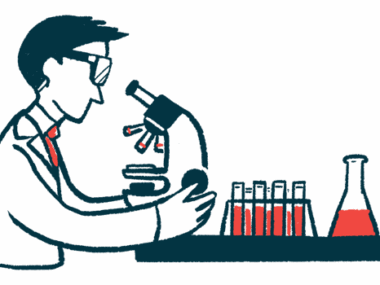New Data from Key Trial of Kyprolis to Treat Advanced Multiple Myeloma Shows Benefits
Written by |

Amgen reported findings from a post-hoc analysis of the pivotal Phase 3 ASPIRE clinical trial, highlighting the continued benefits of carfilzomib (Kyprolis), a second-generation proteasome inhibitor, plus a standard two-drug regimen (lenalidomide and dexamethasone) in relapsed multiple myeloma patients. The findings were presented during the recent 21st Congress of the European Hematology Association (EHA) in Denmark.
A separate sub-analyses of the Phase 3 ENDEAVOR study also further confirmed the efficacy and response benefits of treatment with Kyprolis in combination with dexamethasone.
In the ASPIRE trial, data demonstrated that cumulative rates of complete clinical response or better (>CR) increased in patients treated with the Kyprolis-lenalidomide-dexamethasone combination (KRd arm), most quickly in the first 15 months of treatment. The trial’s progression-free survival hazard ratio at 18 months was of 0.58, but 0.69 for the entire trial period (31 months), perhaps because patients in the KRd arm received treatment with Kyprolis for up to 18 months.
Commonly observed adverse events in ASPIRE were thrombocytopenia (22.4 percent), fatigue (22.4 percent), anemia (25.5 percent), and neutropenia (34.2 percent).
Six additional abstracts presented further supported the clinical benefit of Kyprolis-based treatments across different patient populations:
- Four presentations related to ENDEAVOR trial data across different patient subgroups demonstrated that relapsed or refractory multiple myeloma patients receiving Kyprolis-dexamethasone (Kd) treatment had superior progression-free survival compared to those treated with bortezomib in combination with dexamethasone (Vd arm). The subgroup analyses grouped patients based on previous treatment, cytogenetic risk, age, and Asian heritage.
- Secondary analysis from the ENDEAVOR trial showed that, compared to patients treated with subcutaneous bortezomib, those given Kd had prolonged progression-free survival regardless of previous bortezomib treatment, suggesting Kd has a favorable benefit-risk profile, and better clinical outcomes and efficacy.
- Data from the ASPIRE trial assessed the safety and efficacy of Kyprolis based on the baseline cytogenetic risk status, and showed that KRd-treatment improved progression-free survival compared to lenalidomide and dexamethasone monotherapy.
“This week’s presentations at EHA continue to confirm that compared to previous standard of care therapies, across patient populations and therapeutic combinations, treatment with Kyprolis can extend the time patients live without their disease progressing,” Sean E. Harper, MD, executive vice president of Research and Development at Amgen, said in a press release. “This abundant clinical research provides substantive, meaningful evidence for Kyprolis as a foundational therapy for relapsed or refractory multiple myeloma patients.”
The U.S. Food and Drug Administration (FDA) approved Kyprolis (carfilzomib), in combination with lenalidomide and dexamethasone, as a treatment for relapsed multiple myeloma patients who had one to three prior lines of therapy in July 2015. The agency also approved Kyprolis as a single agent for previously treated, relapsed or refractory multiple myeloma patients in January 2016.



